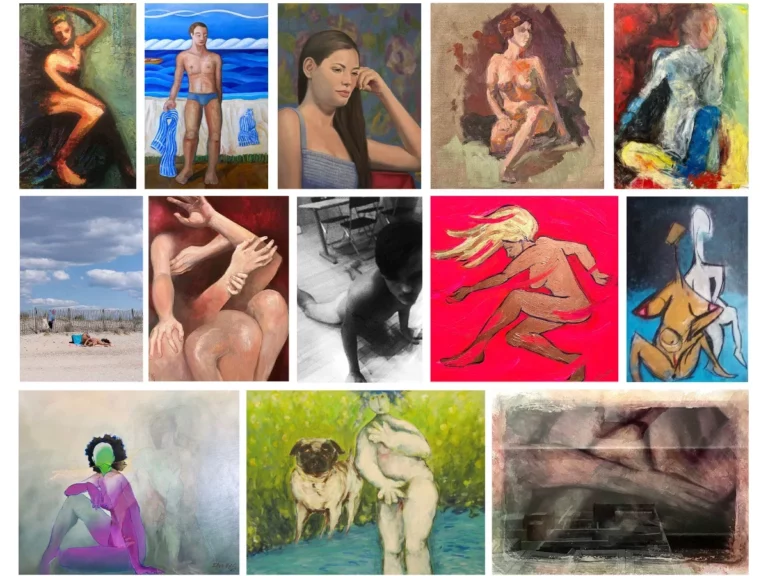The hidden dangers of a lack of self-awareness: Procrastination

Procrastination is a common experience that affects us all at some point in our lives and is considered to be a hidden danger linked to lack of self-awareness. It can be tempting to put off tasks that require effort, time, or mental energy, and instead, engage in more pleasurable activities like scrolling through social media or binge-watching TV shows. But what many people fail to realize is that procrastination can have hidden dangers, particularly when it’s driven by a lack of self-awareness.
Studies have shown that procrastination can have a significant impact on productivity, with the average person wasting up to 2 hours per day on non-work-related activities. Additionally, when we procrastinate, our brains release dopamine, a neurotransmitter associated with pleasure and reward, which can reinforce the behavior and make it even harder to break the habit.
But what happens when we procrastinate because we lack self-awareness? When we’re not aware of our true worth or our abilities, we may doubt ourselves and feel overwhelmed by tasks that we perceive as too challenging or outside of our comfort zone. This can lead to a vicious cycle of procrastination, self-doubt, and decreased productivity, which can have long-term consequences for our personal and professional lives.
In this article, we’ll explore the hidden dangers of procrastination that are driven by a lack of self-awareness. We’ll delve into the latest research on productivity and the brain, and provide practical tips and strategies for developing greater self-awareness. By the end of this article, you’ll have a deeper understanding of how procrastination can impact your life and the one switch that will end procrastination forever

Table of Contents
Self-awareness: the one seed you need to nurture to end procrastination for good
Learning who we are destined to be is a lifelong journey that involves self-discovery, personal growth, and introspection. It requires us to dig deep within ourselves to uncover our true passions, values, and beliefs. Like a seed that has been planted in the ground, we must nurture ourselves and provide the right environment for our potential to flourish and bloom. Just as a seed needs sunlight, water, and nutrients to grow, we need to expose ourselves to new experiences, ideas, and perspectives to learn more about ourselves. Like a plant that grows towards the sun, we must follow our inner compass and intuition to discover who we are meant to be.
But much like a plant that faces challenges such as pests, drought, and disease, we too encounter obstacles on our journey of self-discovery. These challenges can be opportunities for growth and resilience, but only if we approach them with a growth mindset and a willingness to learn.
Ultimately, our journey of self-discovery is like that of a caterpillar transforming into a butterfly. It requires us to shed old layers of ourselves, to let go of what no longer serves us, and to embrace the discomfort of growth. But the reward is a newfound sense of self-awareness, purpose, and fulfilment as we emerge from our cocoon as a beautiful, vibrant butterfly, ready to take flight and explore the world around us.
Self-awareness is the ability to recognize and understand your own emotions, behaviors, and personality traits. Lack of self-awareness can have a profound impact on your life, from missed opportunities to strained relationships. Procrastination, or the habit of putting things off until the last minute, is often a symptom of a lack of self-awareness. In this article, we’ll explore the hidden dangers of a lack of self-awareness and provide practical tips on how to end procrastination forever.

The Dangers of a Lack of Self-Awareness
Without self-awareness, you may not recognize your own strengths and weaknesses. This can lead to missed opportunities, such as not applying for a job that would be a perfect fit for your skills, or not pursuing a hobby that you’d be great at. Additionally, lack of self-awareness can make it difficult to recognize when you’re in a toxic situation, such as an abusive relationship or a dead-end job.
Lack of self-awareness can also strain relationships. Without understanding your own emotions and behaviors, it’s hard to communicate effectively with others. You may come across as insensitive, defensive, or closed-minded, which can cause others to feel frustrated or resentful.
If you don’t know your own strengths, you may undervalue yourself and feel insecure. Conversely, if you don’t recognize your weaknesses, you may set unrealistic expectations for yourself and become easily discouraged.
The Link Between Procrastination and Self-Awareness
Procrastination is often a symptom of a lack of self-awareness. When we procrastinate, we may be avoiding a task because we’re unsure of our own abilities or priorities, or because we doubt ourselves and fear failure. These doubts and fears are often rooted in a lack of self-awareness, where we’re not fully in touch with our own strengths, weaknesses, and values.
For example, if you’re avoiding a task because you feel like you’re not good enough to complete it, this could be a sign that you’re not fully aware of your own abilities. You may have a negative self-image or belief system that’s holding you back from taking action, and until you become more self-aware and identify these beliefs, you’ll continue to procrastinate and hold yourself back.
Similarly, if you’re avoiding a task because you feel like there’s no point in trying unless you can do it perfectly, this could be a sign of perfectionism, which is often linked to a lack of self-awareness. Perfectionism can be a form of self-sabotage, where we set impossibly high standards for ourselves that we know we can’t meet, and then use our failure to meet those standards as an excuse for not trying in the first place.
In addition to doubts and fears about our abilities and perfectionism, we may also be avoiding difficult emotions when we procrastinate, such as fear of failure or fear of success. These emotions can be uncomfortable and overwhelming, and it’s often easier to avoid them altogether than to confront them head-on. But by avoiding these emotions, we’re also avoiding opportunities for growth and development, and we’re ultimately holding ourselves back from reaching our full potential.
The good news is that by developing greater self-awareness, knowing yourself, you can start to break free from the grip of procrastination and move towards greater productivity, fulfillment, and success. By identifying your strengths, and understanding your values and beliefs, you can gain a deeper understanding of yourselves and what motivates you, and you can live with greater confidence and purpose.

Procrastination: breaking the vicious cycle
Lack of self-awareness can have a profound impact on your life, from missed opportunities to strained relationships. Procrastination is often a symptom of a lack of self-awareness, as it can lead to avoidance of tasks and difficulty in decision-making. Looking at your to do list and how it gets bigger everyday, you might think that it’s impossible to end the cycle of procrastination and feel hopeless . This is when you realise that practicing mindfulness, identifying your values, setting realistic goals or holding yourself accountable, is simply not working. After trying everything in a desperate attempt to take control of your life and achieve your goals, you really need to take a break. Star thinking so much…Remember, it’s never too late to start practicing self-awareness and get clarity on what really matters. This clarity can also reduce the urge to procrastinate, as you’ll be give you energy to take action on things that align with your values.
Finally, remember to be kind to yourself. If you do procrastinate, don’t beat yourself up about it. Instead, practice self-compassion by acknowledging your feelings and offering yourself words of encouragement.
What does it take to end procrastination forever
You wake up in the morning and look at your to-do list for the day. You see a number of important tasks that need to be completed, but you don’t feel motivated to start any of them. You tell yourself that you’ll get to them later, after you’ve had breakfast and checked your social media.
Before you know it, it’s already midday, and you still haven’t started any of the tasks on your list. You start to feel a sense of panic and frustration as you realize that time is slipping away. You tell yourself that you’ll start working after lunch, but then you decide to take a nap instead.
As the day wears on, you find yourself getting more and more anxious about the tasks that need to be done. You try to distract yourself by cleaning your room, making a snack, or watching TV, but none of these activities seem to make you feel any better. In fact, they only serve to make you feel more guilty about procrastinating.
As the evening approaches, you finally force yourself to start working on one of the tasks on your list. It’s difficult at first, but once you get into a groove, you start to feel a sense of accomplishment. You wonder why you didn’t start earlier in the day, and you vow to be more productive tomorrow.
But as you lay down to sleep that night, you can’t help but feel a sense of regret about how much time you wasted procrastinating. You resolve to be better tomorrow, but deep down, you know that you’ll likely fall back into old habits once again.
The cycle of procrastination can be difficult to break, but it’s not impossible. It takes a conscious effort to identify the root causes of your procrastination and become aware of what makes you feel that you are good enough. Learning about yourself will help you break free from the grip of procrastination.
Being intentional about how we want to feel about ourselves is a powerful tool for personal growth and development. Yet, many people get confused about their intentions and end up creating an ever-growing to-do list instead of focusing on what really matters – how they want to feel and what makes them feel good about themselves.
This confusion is understandable, as we live in a world that values productivity and achievement above all else. We’re constantly bombarded with messages telling us to do more, be more, and achieve more, which can make it difficult to tune into our own feelings and desires. However, research has shown that being intentional about our emotions can have a significant impact on our overall well-being and success.
According to neuroscience, our emotions play a crucial role in decision-making, problem-solving, and creativity. When we’re in a positive emotional state, our brains are more open to new ideas and perspectives, and we’re better able to handle stress and adversity. On the other hand, when we’re in a negative emotional state, our brains become more reactive, and we’re more likely to make impulsive decisions or get stuck in unproductive thought patterns.
By being intentional about how we want to feel about ourselves, we can create a positive emotional state that allows us to be more creative, productive, and fulfilled. This means focusing on the feelings that are most important to us – such as confidence, joy, or gratitude – and identifying the activities or experiences that help us cultivate those feelings.
For example, if you want to feel more confident about yourself, you might make a list of the things that make you feel confident, such as expressing yourself in a certain way, practicing a skill you’re good at, or spending time with supportive friends. Then, you can prioritize those activities and incorporate them into your daily routine, rather than just adding them to an ever-growing to-do list.
Being intentional about our emotions is about prioritizing what really matters to us and taking control of our own well-being. By focusing on the feelings that make us feel good about ourselves, we can cultivate a positive emotional state that allows us to thrive and achieve our goals.

FAQs
- What is self-awareness? Self-awareness is the ability to recognize and understand your own emotions, behaviors, and personality traits.
- How can lack of self-awareness impact your life? Lack of self-awareness can lead to missed opportunities, strained relationships, and low self-esteem.
- Is procrastination a symptom of a lack of self-awareness? Yes, procrastination can be a symptom of a lack of self-awareness, as it can be a way of avoiding difficult emotions or decision-making.
- How can I increase my self-awareness? You can increase your self-awareness by practicing mindfulness, identifying your values, and reflecting on your thoughts and emotions.
- Is it possible to end procrastination forever? Yes, with practice and commitment, it’s possible to end procrastination forever by setting realistic goals, holding yourself accountable, and practicing self-compassion.




